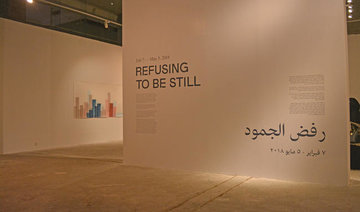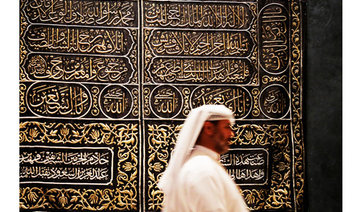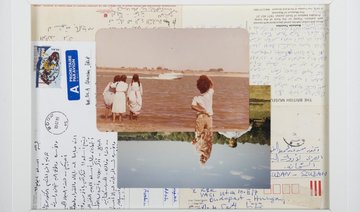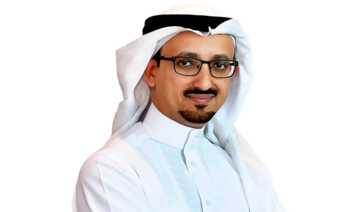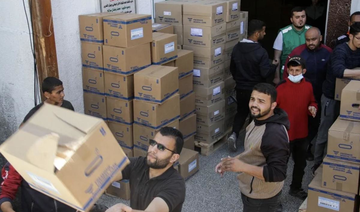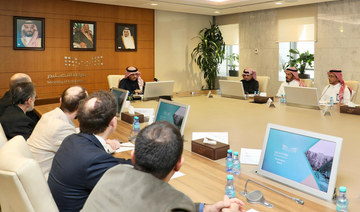JEDDAH: Art Books Jeddah opened its gates to visitors on Thursday at Jeddah’s Athr Gallery. The fair will run until Sunday, acting as a focal point for those passionate about art publishing in Saudi Arabia.
Misk Art Institute (MAI), founded by Crown Prince Mohammed bin Salman, collaborated with Crossway Foundation, Fully Booked and Bricklab to create Saudi Arabia’s first art book fair. MAI supports Vision 2030, empowering the art scene in Saudi Arabia and particularly women, as they make up 50 percent of the fair’s exhibitors.
Athr Gallery’s pavilion has hosted independent creative publishers, artists and designers working on printed art. It has provided a cozy space for people to explore local artists’ books and design publications, and brought together diverse individuals and collaborations. The comfortable ambience and rooftop space allowed for discussions between exhibitors and the public about the works on display.
Hamza Serafi, Athr Gallery founder, told Arab News. “The book fair is our latest event, along with The Clocks Are Striking Thirteen, in collaboration with Misk; it’s a traveling show and this year it started in Jeddah, while later it might go on to other places.
“The Clocks Are Striking Thirteen is part of 21,39, which is a local initiative of the Saudi art concept to promote art in Jeddah,” he said. “It searches the identity of reality, what it is and isn’t, and the diversity of reality. It raises questions, not depending on collective memory, but on looking and searching to challenge reality. In addition to that, we have video art and some installations.”
Nada Al-Tuwaijri, head of media and communications at Misk, told Arab News: “The purpose of the Misk Art Institute is to shed light on the arts and culture scene in Saudi Arabia, which was always underground. Today, we can proudly say that we have a platform supported by the government that we can work within. We’ve got plenty of partnerships and collaborations with international institutions in the pipeline. We launched our international program at the Museum of Modern Art in New York, and we appreciate the support we had from these partnerships. In a short period of time we managed to prove how powerful the scene is, hence the acceptance of these grand institutions to support us.”
On MAI’s upcoming projects, Al-Tuwaijri promised a number of impressive acts such as Art Dubai in March, followed by the Venice Biennale: the first Saudi pavilion, a first for the Kingdom.
France’s former Minister of Culture, Jack Lang, spoke to Arab News about the importance of such events. “Saudi Arabia is a fabulous country, rich in art and culture. I hope to establish Arab artists in France, and vice versa, bring French artists here. After all, art is universal. This is my third time in Saudi Arabia, and the art scene is exciting, changing and is very creative. The atmosphere is marvelous. People are living, and they’re kind and open.”
Fatima Al-Banawi, actor and the brains behind The Other Story, told Arab News: “I started The Other Story in 2015, when I began asking people to write down their stories, anonymously and handwritten.”
Al-Banawi set out looking for people in small companies, universities, cafes, bazaars, festivals and places where she could connect with people. She approached people openly about the purpose of her project: to engage on a human level, which is why the stories are anonymous and handwritten. She wished for people to connect with these stories rather than judge based on name or occupation or race, to connect outside a person’s background.
“They’re very intimate, and I wanted them raw and imperfect, taken on the spot, because that’s human nature and we tend to forget,” Al-Banawi said.
“The moment I see people crying, connecting, hugging, I feel like the project is going somewhere,” she said.
She hopes to publish The Other Story by April, with seven different themes with additional biographical introduction followed by people’s letters. “I’ve written so much in it, by connecting the stories about family, love and relationships, travel and the universe, art and career, self-reflection and growth, loss, growth and resilience and moments in life.”
Other featured exhibitors include: Basmah Felemban, Destination Jeddah, Kartt & Co, Radwan Brothers, Thinktank, Mazin Maimani, Sarah Taibah, Design Magazine, Nur Taibah, Zahra Dar, Omar Hashani, Shoes & Drama, Zainab Almashat, WTD Magazine, Tribe Magazine, Finjan by Daveeda Shaheen, Raheem Bukhari, Abeer Bajandouh and Sarah Ali.
Saudi Arabia’s first art book fair comes to Jeddah
Saudi Arabia’s first art book fair comes to Jeddah
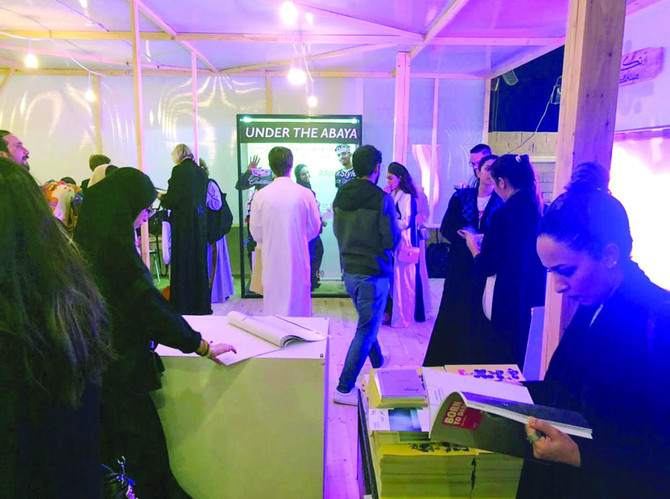
WEF forum in Riyadh: Geopolitical threats top risk for global economy, says Saudi minister of finance
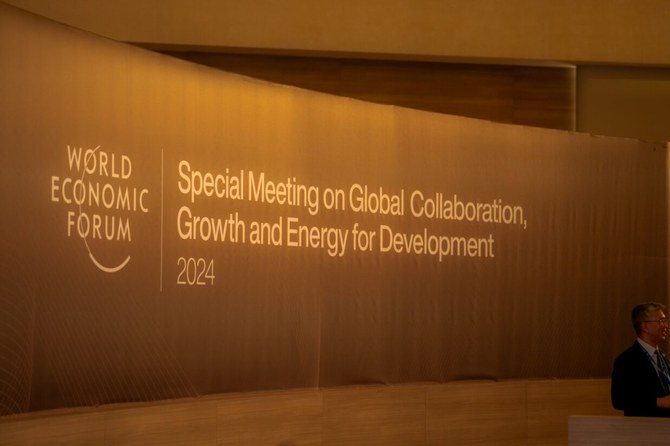
- Mohammed Al-Jadaan: Conflicts such as in Gaza put a lot of pressure on economic mood, and economies are impacted by sentiments
- For years Saudi Arabia has made it a specific objective to de-escalate in the region
RIYADH: Geopolitical threats, such as the Gaza war and conflict in Ukraine, are the foremost risk for the global economy nowadays, Mohammed Al-Jadaan, Saudi Arabia’s minister of finance, told a panel of the special two-day World Economic Forum (WEF) meeting in Riyadh.
“Geopolitical threats, which unfortunately are increasing instead of decreasing, are possibly the number one risk today if you look at the global economy at large. Geopolitical tensions bring other things that are directly impacting economies,” Al-Jadaan said.
The roiling Gaza war along with conflicts in Ukraine and elsewhere put “a lot of pressure on the economic emotion” such that “economies are impacted by sentiments,” the minister added.
“It is very unfortunate to see loss of lives. Civilian lives are important whether in Ukraine, or in Palestine.
“Cool-headed countries and leaders need to prevail, you need to make sure you de-escalate.”
The Saudi official has emphasized that the Kingdom in years has made it ‘a specific objective to de-escalate in the region.’
“The region needs to focus on its people, its growth, its economy rather than focus on politics and conflict.”
The conflict in Gaza spiralled with a surprise attack on October 7 by the militant group Hamas in southern Israel, which resulted into the death of 1,170 people, mostly civilians. Israel’s devastating retaliatory offensive meanwhile has killed at least 34,388 Gaza residents, mostly women and children.
Palestinian president Mahmoud Abbas, in a separate panel, said that “110,000 people have been killed or wounded in Gaza since October 7” and “75 percent of the territory” has been destroyed by the devastating Israeli military action.
“What happened in Gaza has not happened in Germany during the Second World War and other European countries. The fighting in Gaza must stop immediately and we warn against any plans for displacement,” Abbas said in his remarks.
Geopolitical maneuverings that weigh on the global economy, according to Al-Jadaan, could include ‘fragmentation, protectionism and using economy as a serious tool to achieve objectives in terms of limitations on trade, technology.’
“Policymakers need to be agile in dealing with these,” Al-Jadaan emphasized.
Kristalina Georgieva, the managing director of International Monetary Fund, agreed, noting that ‘fragmentation in the world economy was certainly bad for the prospect of growth.’
“The mmediate priorities for countries are to get inflation rates within targets; focus on rebuilding fiscal buffers and find ways to cooperate more,” Georgieva said in the opening panel.
“In economic planning, it is OK to change… to adjust on new circumstances. And that to me is the advice I would give to everyone. You need a long term plan, like Saudi Vision 2030, and doubling down on the implementation but also you need to make sure you adjust,” Al-Jadaan meanwhile said.
“In the longer term, regardless of what is happening today, you need to focus on your own people, your human capital. This is the longer term play that is critical.
“I can say this, Saudi Arabia and the region has the means to do it, but there are a lot of countries who wil find it difficult to provide quality education, quality healthcare for their people,” he said.
Around 1,000 thought leaders from 92 countries are in Riyadh for the World Economic Forum’s Special Meeting on Global Collaboration, Growth and Energy for Development to “promote forward-thinking approaches to interconnected crises, while remaining realistic about shorter-term trade-offs” and “work to bridge the growing North-South divide on issues such as emerging economic policies, the energy transition and geopolitical shocks.”
Heba Ismail brings Saudi representation to NFT ecosystem
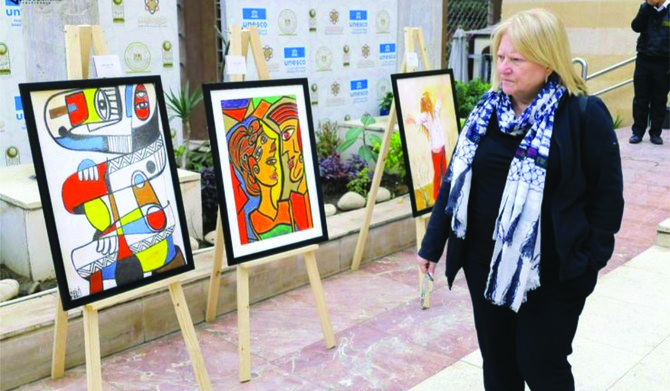
- Heba Ismail is highlighting ways for artists to flourish in the digital world
JEDDAH: Saudi artist Heba Ismail showcased her work at the Outer Edge Innovation Summit in Riyadh this week.
Commenting on her experience at the summit as one of the first Saudi artists to venture into the Web3 art scene, she said: “Having my paintings displayed on the event screens is a tremendous honor, offering global visibility and inspiring more Saudi and Arab artists to explore the diverse options available for sharing their art with the world.
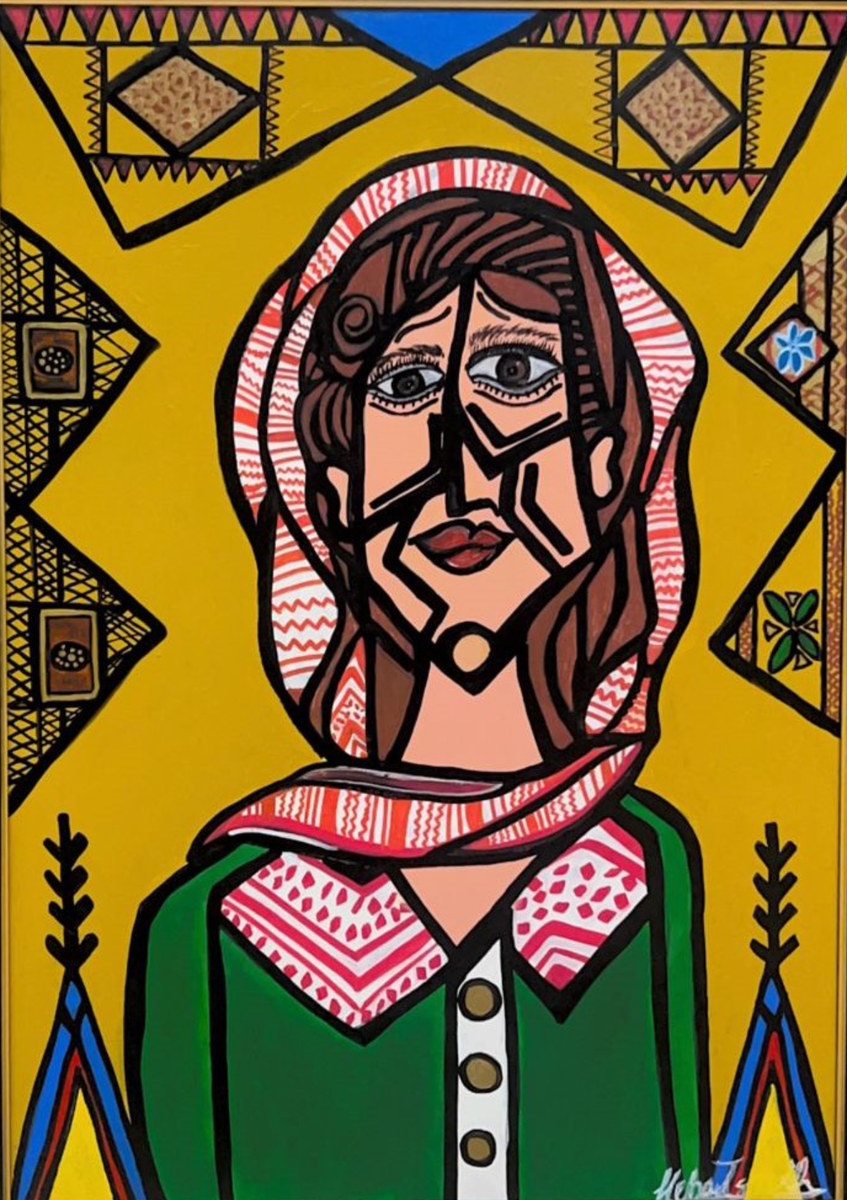
“Through my participation with Nuqtah, the first Saudi NFT platform, I am eager to present my art on a global stage and connect with audiences in innovative ways,” she continued.
Non-fungible tokens — or NFTs — are, in this scenario, digital tokens that can be redeemed for a digital art work. Ismail is exploring their potential in the Saudi art scene.
HIGHLIGHTS
• With a professional background in dentistry, Heba Ismail found parallels between that meticulous work and her own creative process.
• Partnering with ChainVisory, a blockchain consultancy company, Ismail launched the Hebaism brand.
• It combines NFTs and original paintings, providing collectors with both digital and physical assets.
For Ismail, art has always been more than just a hobby — it’s been a lifelong calling. With a professional background in dentistry, Ismail found parallels between that meticulous work and her own creative process.
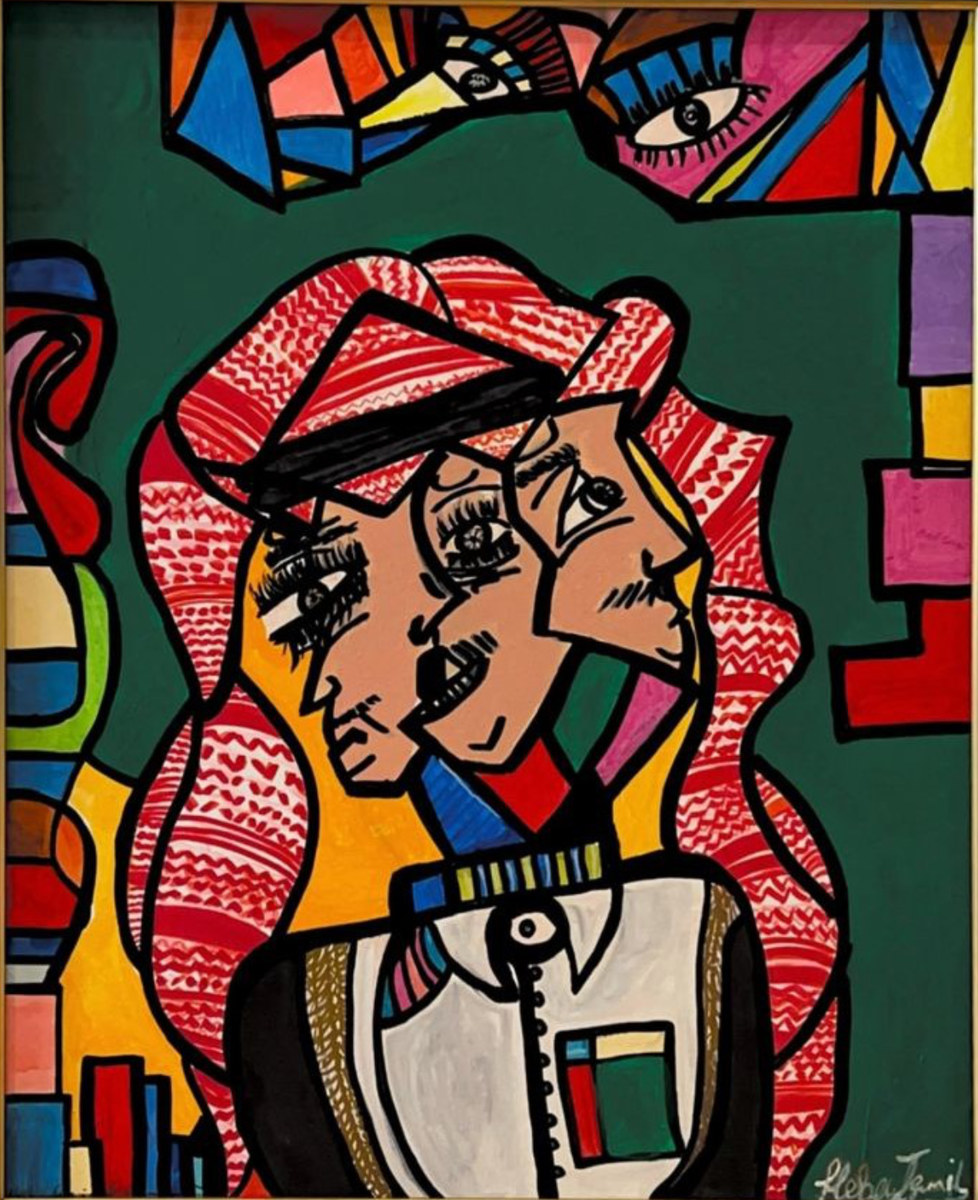
Inspired by movements including cubism, fauvism, and surrealism, Ismail’s art is a fusion of diverse influences and personal narratives “Each face represents a feeling and a vision documented on a painting. I paint poetry, and often times each piece is accompanied by a poem,” she said. “As a Saudi female, most of my paintings represent myself and my Saudi culture, which I am proud of. The characters are coded feelings, faces that tell a story — either joy, sadness, or acrimony.”

Her introduction to NFTs came in 2021, sparking a fascination with the technology and its potential. Partnering with ChainVisory, a blockchain consultancy company, Ismail launched her Hebaism brand, which combines NFTs and original paintings, providing collectors with both digital and physical assets.
As a female Saudi artist, I want to leave a mark and impact on every art platform, putting Saudi art on the map worldwide.
Heba Ismail, Saudi artist
“I wanted to keep the authentic classical painting process, yet the NFT world gave me a chance to meet and discover different ways to share my art and build a name and a brand,” she said. “It’s been an enlightening journey, uncovering the futuristic art process and connecting with a vibrant community through Web3.”
Ismail hopes to inspire other artists in the region to explore new avenues for artistic expression.
“As a female Saudi artist, I want to leave a mark and impact on every art platform, putting Saudi art on the map worldwide,” she said.
Who’s Who: Ahmed bin Ali Al-Suwailem, CEO of the National Center for Non-Profit Sector
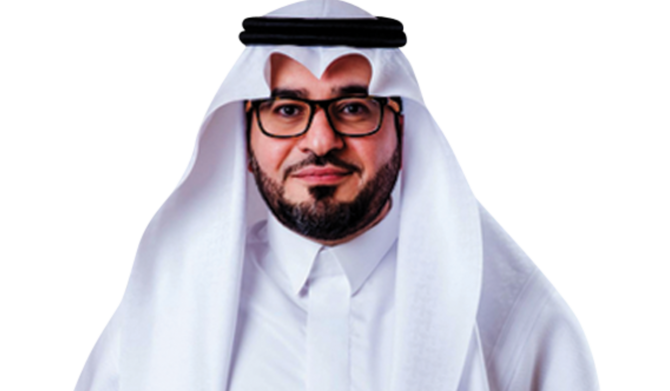
Ahmed Al-Suwailem has been CEO of the National Center for Non-Profit Sector since 2022. He has over 20 years of experience in the public and private sectors, specializing in economics, trade, finance, and banking.
Al-Suwailem is responsible for developing the Kingdom’s non-profit sector, expanding its impact on social and economic development, and integrating government efforts in licensing, financial supervision, and coordination.
Prior to his current position, Al-Suwailem, at various times, served as CEO of the National Anti-Commercial Concealment Program at the Saudi Ministry of Commerce; as adviser to the Saudi Minister of Commerce; and as secretary general of the Riyadh Chamber.
He has also been head of management information systems in financial planning and control at Saudi Investment Bank, and executive vice president of financial control at Gulf International Bank.
Al-Suwailem currently also serves as managing director and board member at the Riyadh International Exhibition Center and is a board member of the General Authority for Awqaf and the Associations Support Fund, a trustee of the Riyadh Economic Forum, and a member of the executive committee for remuneration and compensation at the Riyadh Chamber.
Al-Suwailem holds a master’s degree in finance from George Washington University in the US and a bachelor’s degree in accounting from King Saud University in Saudi Arabia.
He is a certified management accountant and public accountant and holds a certificate in international financial reporting standards and accreditation in exhibition and conference management from the International Association of Exhibitions and Events.
Saudi FM Prince Faisal hosts Arab ministerial meeting on Gaza situation in Riyadh
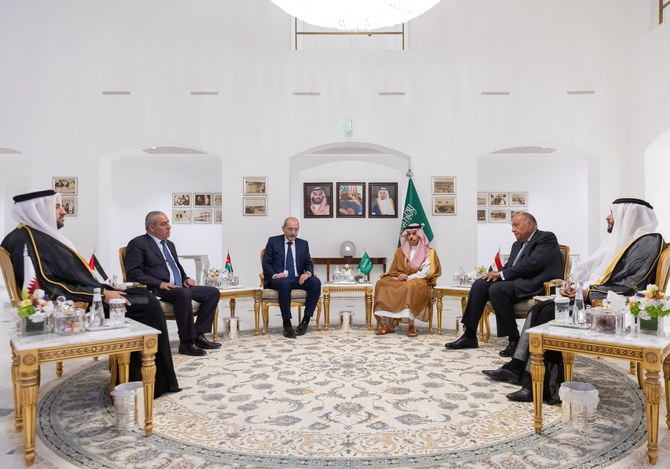
RIYADH: Saudi foreign minister Prince Faisal bin Farhan hosted a ministerial meeting on Saturday in Riyadh with representatives from six other Arab states to discuss the situation in Gaza, Saudi Press Agency reported.
The meeting was attended by Ayman Al-Safadi of Jordan, Egypt’s Sameh Shoukry, Secretary of the Executive Committee of the Palestine Liberation Organization Hussein Al-Sheikh, diplomatic adviser to the UAE president Anwar bin Mohammed Gargash, and Minister of State at the Qatari Ministry of Foreign Affairs, Mohammed bin Abdulaziz Al-Khulaifi.
They discussed the need to end the war on the Gaza Strip, reach an immediate and complete ceasefire, ensure the protection of civilians in accordance with international humanitarian law, and lift all restrictions that impede the entry of humanitarian aid into the enclave.
They also expressed their support for all efforts aimed at international recognition of an independent Palestinian state, something they agreed was vital for Palestinians to be able to take irreversible steps to implement the two-state solution.
The ministers stressed the need for a State of Palestine to be based on the borders of June 4, 1967, with East Jerusalem as its capital, in accordance with relevant international resolutions.
They expressed their categorical rejection of any attempts to displace the Palestinian people from their land, and any military operation in the Palestinian city of Rafah.
The ministers warned of the continuation of illegal Israeli measures in the West Bank and occupied East Jerusalem that undermine the two-state solution, including settlement expansion, land confiscation, military operations against Palestinians, settler attacks, and besieging freedom of worship for Muslims and Christians.
70 Saudi students win medals at tech Olympiad
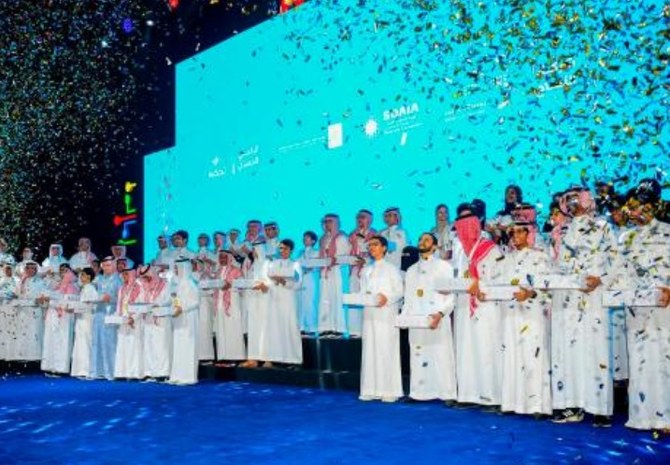
- Young talents from across the Kingdom shine in programming and AI
- The event also “aims to enhance the global competitiveness of this generation to help achieve the objectives of the Human Capacity Development Program, (part of) Saudi Vision 2030”
RIYADH: The National Olympiad for Programming and Artificial Intelligence (ATHKA) concluded on Saturday.
The event, organized over several months by the Saudi Data and Artificial Intelligence Authority, in partnership with the King Abdulaziz and His Companions Foundation for Giftedness and Creativity (Mawhiba) and the Ministry of Education was intended to “nurture a promising generation of Saudi school students from intermediate and secondary levels, totaling about 3 million across various regions and governorates of the Kingdom, in the fields of programming and artificial intelligence,” according to the Saudi Press Agency.
The SPA added that the event also “aims to enhance the global competitiveness of this generation to help achieve the objectives of the Human Capacity Development Program, (part of) Saudi Vision 2030.”
Saudi Minister of Education Yousef Al-Benyan; chairman of the board of directors of the Education and Training Evaluation Commission, Dr. Khalid bin Abdullah Al-Sabti; president of SDAIA, Abdullah Al-Ghamdi; and the secretary-general of Mawhiba, Amal Al-Hazzaa, along with several officials from the fields of education and academia, a select group of AI specialists, and parents of the students, attended the event at Princess Nourah bint Abdulrahman University.
Yaser Al-Onaizan, CEO of the National Center for Artificial Intelligence at SDAIA, delivered a presentation on AI and its role in developing human capabilities at the event. He noted that the human element is key to AI, and said that today’s students will become experts in new technologies faster than ever due to the ample learning and training opportunities in AI.
The final round of the competition was held from April 23 to 27 in Riyadh. Five students from the secondary level and five students from the intermediate level were awarded gold medals in the Olympiad. Eleven students from the secondary level and 10 from the intermediate level received silver medals, while 19 secondary students and 20 intermediate students earned bronze.
A total of 298 students competed in the final stage after qualifying from a pool of 260,000 Saudi students from across the Kingdom.
The Olympiad was designed to find “outstanding school students skilled in computational thinking to analyze and solve algorithmic programming challenges,” according to the SPA. “This step would help them enter the field of AI and encourage them to develop computational thinking skills, design AI-based algorithms, and recognize these skills as essential for learning in the 21st century.”
Its goals also included, the SPA reported, “harnessing young students’ intellectual abilities to solve complex problems, fostering a knowledge-based economy, promoting competitive programming, and cultivating a generation capable of excelling in international Olympiads in informatics and AI. Additionally, it aimed to build and strengthen the next generation’s skills in advanced technology, including AI-related fields.”



